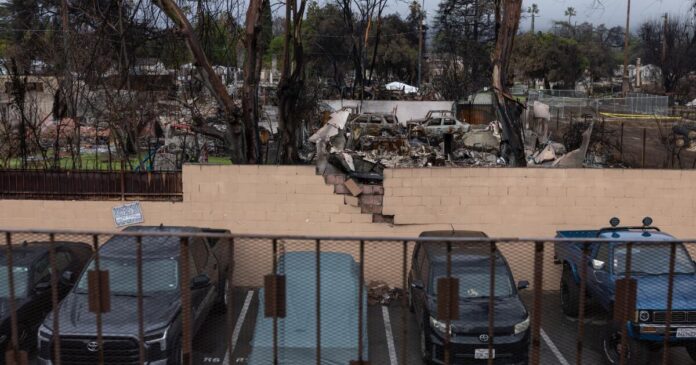“Who’s Really in Charge of Your Utility Bills? Meet the 5 Members of the California Public Utilities Commission”
The California Public Utilities Commission (CPUC) is currently under scrutiny for its lack of representation for Southern Californians, despite the fact that the decisions made by the commission directly impact millions of residents in the region. The five commissioners, all appointed by Governor Gavin Newsom, live in or near Sacramento or San Francisco, far from the areas served by major utilities like Southern California Edison and San Diego Gas & Electric.
The commission is set to consider raising electric rates following the devastating Eaton fire, which was captured on video igniting under one of Southern California Edison’s transmission towers in Eaton Canyon. Edison has requested a rate increase of over 2% to bolster its financial health after the Los Angeles wildfires. This request has sparked outrage among residents who have seen their electric bills soar in recent years.
Despite repeated protests from Southern Californians, the commission has approved multiple rate increases requested by utilities like Edison. Many residents feel that the lack of representation on the commission has led to decisions that do not prioritize the interests of those directly affected.
Assemblymember Rhodesia Ransom has introduced a bill, AB 13, that would require the governor to appoint a commissioner from each of the four regions used by the Board of Equalization, with the fifth commissioner having a background in public advocacy. This legislation aims to ensure that utility customers have access to representatives who understand their concerns and can empathize with the impact of their decisions.
The CPUC, originally established as the Railroad Commission in the late 1870s, holds expansive regulatory power over privately owned companies that provide essential services like electricity, water, natural gas, and telecommunications. The commission’s decisions, such as keeping the Aliso Canyon natural gas storage facility open indefinitely despite protests from residents, have faced criticism for prioritizing corporate interests over public safety.
The lack of geographic diversity on the commission has raised concerns about accountability and transparency in decision-making. Residents affected by disasters like the Eaton fire and the Thomas wildfire are calling for greater oversight and representation to ensure that their interests are not overlooked in favor of corporate profits.
As the commission continues to make decisions that impact millions of Californians, the debate over representation and independence from the governor’s office is likely to intensify. The outcome of bills like AB 13 and efforts to reform the appointment process for commissioners will shape the future of utility regulation in the state.
